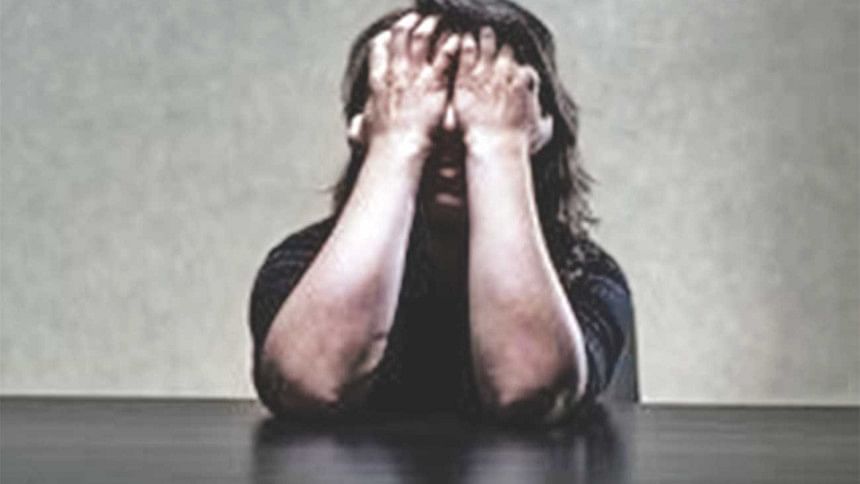Emotional Abuse-The Dark Side of a Romantic Relationship

Dear Maya Apa
My husband always tries to control my actions, like he decides everything that I should do, I cannot talk freely with my family members. If I go to any family party, he gets angry at me. I have to stay alone at home the whole day and I have to seek permission for everything that I want to do. Now I feel so alone, depressed, and often feel suffocated. Please help me.
Dear Reader,
Thank you for sharing your feelings with me. I can feel your struggle. It seems like you are suffering from emotional abuse, where, your partner is trying to control almost everything in your life.
Just because your partner is not hitting you physically, it does not mean you are not suffering. Many victims of emotional abuse find it difficult to name or even talk about it as they cannot see the abuse, like bruises or broken bones. Emotional abuse in romantic relationships is on the rise, and the psychological damage it inflicts can be very dangerous. Emotionally abusive behaviour is any kind of verbal or nonverbal act that intentionally hurts the feelings of another person.
Emotionally abusive behavior must be distinguished from an emotionally abusive relationship, which is more than the sum of emotionally abusive behaviors.
In an emotionally abusive relationship, the abuser may monitor partner's finances, withhold money or restrict spending money whenever the abuser wishes. The abuser may also monitor partner's whereabouts, check phone and emails, and limit partner's contact with friends and family.
Emotional abuse can range from verbal abuse -- yelling, blaming, shaming and name-calling, to isolation, intimidation, and threats. The abuser may also show the emotional abuse through his or her nonverbal cues like uncomfortable body language, rolling of eyes, sighs, grimaces, harsh tone of voice, disgusted looks or giving a cold shoulder.
Worldwide, several studies showed that up to 35 percent of women in romantic relationships are emotionally abused. In Bangladesh, 44 percent of urban women and 31 percent of rural women in 2001 reported having experienced emotional abuse --which includes insults, humiliation, intimidation, and threats-- and 29 percent of urban women and 20 percent of rural women reported experiencing emotional abuse in the past year.
The victims of emotional abuse often feel trapped, and change their behavior or how they dress, talk or speak, in an effort to avoid hurtful language and behaviour by the abusive partner.
The effects of emotional abuse may be harder to spot, and can be more insidious and elusive. Effects of emotional abuse include: feeling of anxiety or fear; shame or guilt, aggression (as a defense to the abuser), becoming overly passive or compliant, frequent crying, avoidance of eye contact, feeling powerless.
If the abuse is chronic, then in the long run, the victim may develop depression and sadness, guilt, low self-esteem, emotional instability, extreme dependence on the abuser, sleep disturbances, suicidal ideations, thoughts or attempts, underachievement, inability to trust others, feeling trapped and alone, substance abuse as well.
Important questions to ask to yourself:
Do you love yourself?
Do you feel secure in this romantic relationship?
Do you have your self-identity preserved while in the relationship??
If you have answered NO to these questions, then you need to rethink this relationship. The first step in dealing with emotional abuse is to learn to spot the signs. Be aware of the signs. Recognise that you are not the problem; it is the abuser and not you who has the problem. Once you recognise that you are not at fault, it will be very easy to give some context to your situation. Do not live in denial and make excuses for them if they are emotionally abusive. Accept that you have been abused and that the abuse is having detrimental effects on your emotional state. Acceptance is part of the solution. Once you have accepted the problem, you can make plans on how you can deal with the abuser. Regain control of the situation by acting confident and looking at the abuser in the eyes. Do not feel afraid, speak in a calm, firm, and clear voice and state a reasonable expectation. Share your feelings with "I" statement like "I do not like the way you treat me", "I feel like I am being dishonoured/insulted by you." Practice being more assertive and firmly say NO to the abuser and set realistic boundaries. If you are keen on enforcing boundaries, then they will serve as a powerful deterrence. Share your feelings with friends and family and ask for their support.
You have the right to be treated with respect and dignity within an equal relationship with your partner. If you are not feeling comfortable being in this relationship, then you have the right to change your mind and or end the relationship if it no longer serves you. If you have suffered from emotional abuse which has had a deep effect on you, then it is important to seek professional help. Counselors can help you to heal yourself and deal with the abuser in a healthy manner.
We know that it takes great strength to come out of such a relationship and it is imperative to speak out and seek help. You are not alone. You do not deserve to be frightened or terrorised. And most importantly-- Love Yourself.
Photo: Maya.com

 For all latest news, follow The Daily Star's Google News channel.
For all latest news, follow The Daily Star's Google News channel. 



Comments